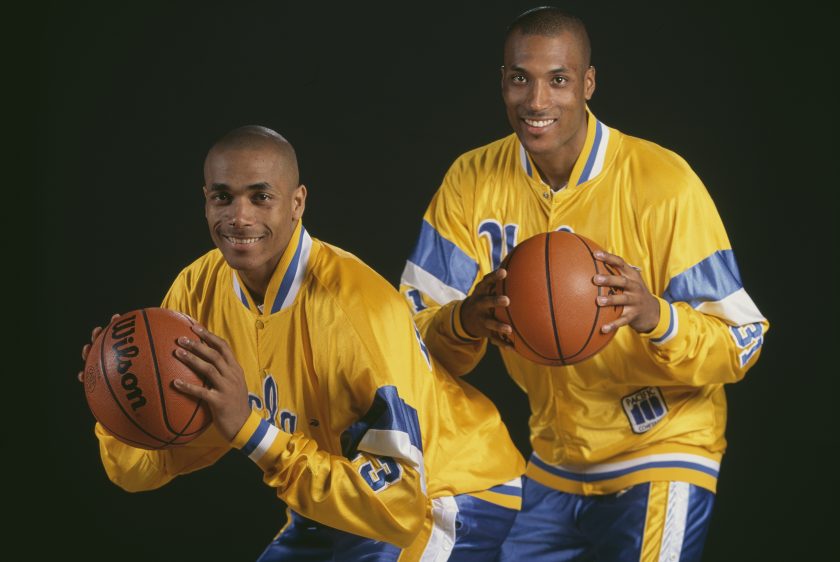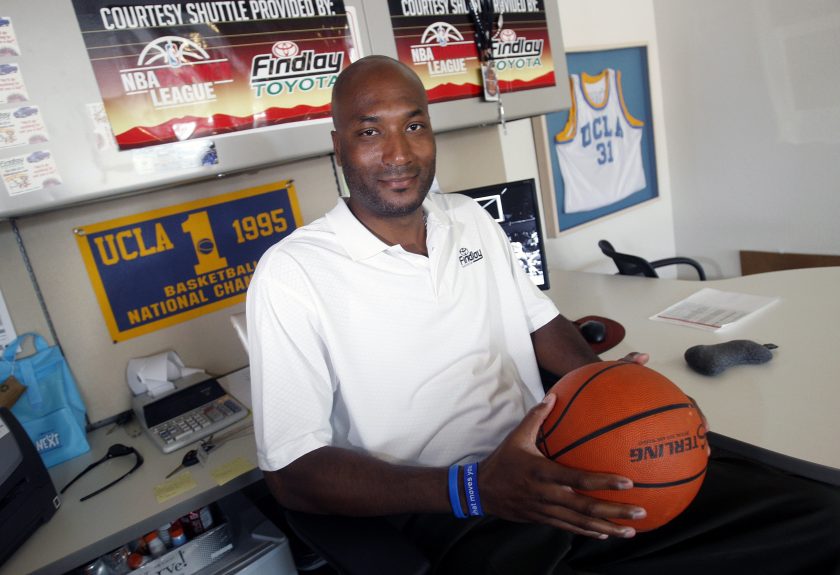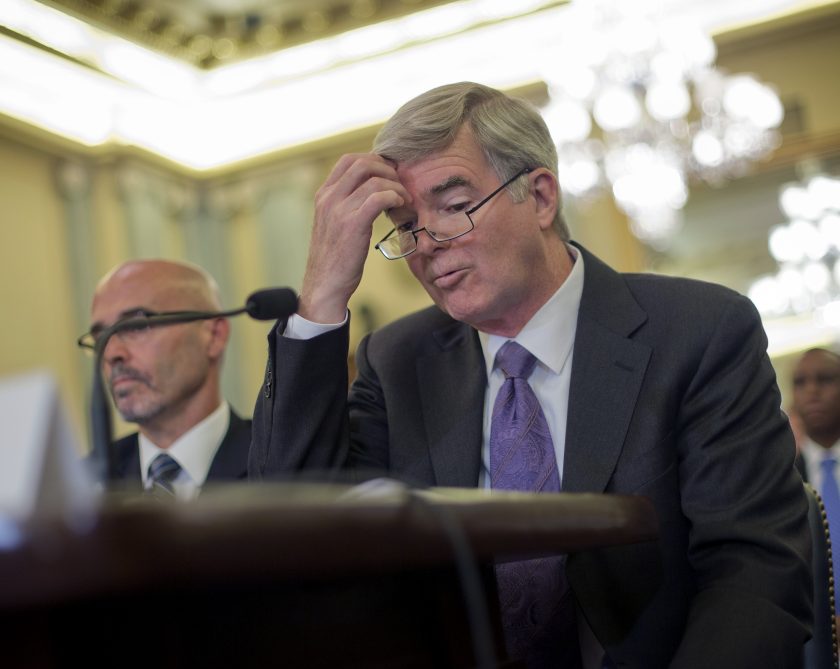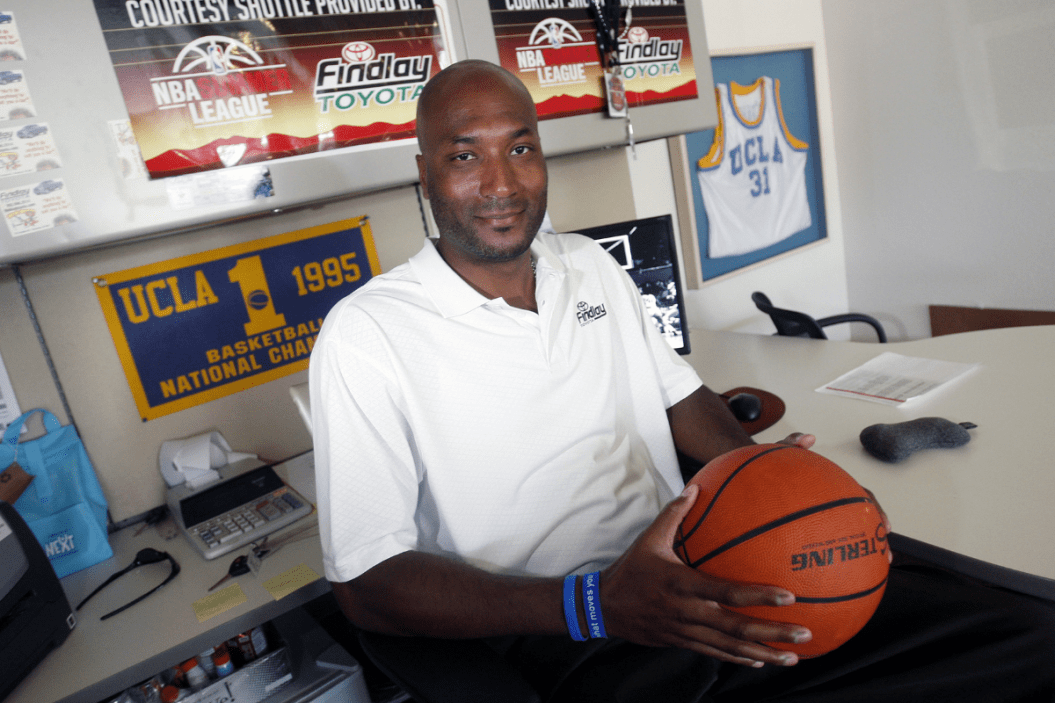Twenty-seven years ago, the UCLA Bruins were the kings of college basketball.
Videos by FanBuzz
A kid by the name of Ed O'Bannon was named the tournament's Most Outstanding Player. He, along with his brother Charles O'Bannon, brought home their program's 11th national championship. Both went on to play in the NBA briefly. Ed became a lottery pick. Charles spent time playing overseas and had a son named Chuck O'Bannon, who currently plays for the TCU Horned Frogs as they gear up for the 2022 NCAA Tournament.
Today's landscape of college athletics — one that now allows players like the younger Chuck to sign million-dollar deals with companies of his choosing — would have never been possible without the help of his uncle, Ed O'Bannon.
How? Let's get into it.
The Landmark O'Bannon v. NCAA Case

Portrait of brothers Charles O'Bannon #33 Shooting Guard (left) and Ed O'Bannon #31, Forward for the University of California, Los Angeles UCLA Bruins during the NCAA Pac-10 Conference college basketball season on 7th March 1995 at the Pauley Pavillion, Westwood, California, United States. (Photo by Al Bello/Allsport/Getty Images)
It was in 2009 that Ed O'Bannnon, well out of basketball by then, sued the NCAA, Electronic Arts and Collegiate Licensing Company over using his name, image and likeness in a NCAA basketball video game.
By March 2010, 11 former college athletes had joined O'Bannon's class-action lawsuit. NBA stars like Oscar Robertson and Bill Russell joined the suit later as well.
There's a full timeline of the case, but the gist is this: In 2014, District Judge Claudia Wilken ruled that the NCAA's model of amateurism and thus not paying athletes had violated antitrust laws. As a result, EA put a halt to its NCAA video games. The company was forced to pay $60 million after the lawsuit.
The ruling set in motion the dismantling of the NCAA's practice prohibiting athletes form being paid for their name, image and likeness, which didn't fully happen until 2021.
How O'Bannon's Case Paved Way For NIL Deals

AP Photo/Isaac Brekken, File
It wasn't until National Collegiate Athletic Association v. Alston that the Supreme Court made a decision on the issue.
On June 21, 2021, the Supreme Court unanimously ruled in favor of Shawne Alston, a former college football running back at West Virginia, and student-athletes in the landmark case. In Justice Brett Cavanaugh's concurring opinion, he wrote that the "NCAA's business model of using unpaid student-athletes to generate billions of dollars in revenue for the colleges raises serious questions under the antitrust laws."
Then, under pressure from state legislators, the NCAA finally allowed its student-athletes to benefit from their name, image and likeness.
"This is an important day for college athletes since they all are now able to take advantage of name, image and likeness opportunities," NCAA President Mark Emmert said in a release in June 2021. "With the variety of state laws adopted across the country, we will continue to work with Congress to develop a solution that will provide clarity on a national level. The current environment — both legal and legislative — prevents us from providing a more permanent solution and the level of detail student-athletes deserve."

AP Photo/Pablo Martinez Monsivais, File
Today, there are hundreds — no, probably thousands — of NIL deals out there for college athletes across the country. In the NCAA Men's and Women's Tournaments alone, you'll find plenty: Gonzaga's Drew Timme and his wonderful mustache are partnered with Dollar Shave Club, and UConn's Paige Bueckers has deals with companies like Gatorade, StockX and Cash App, likely totaling more than $1 million.
And more is on the way.
College sports will never be the same, and football players, basketball players and more can thank one man for kickstarting the campaign to allow them to profit off the use of their names, images and likenesses: Ed O'Bannon.
"I knew a little bit of what he was doing, or what he was trying to do," his nephew, Chuck O'Bannon, told the Fort Worth Star-Telegram in a recent interview. "Now that I'm older, it all makes sense. I get it now. Back then, I didn't."
Now go get yourself a NIL deal, Chuck. This one's on Uncle Ed.
MORE: The 25 Highest-Paid Coaches in College Basketball
